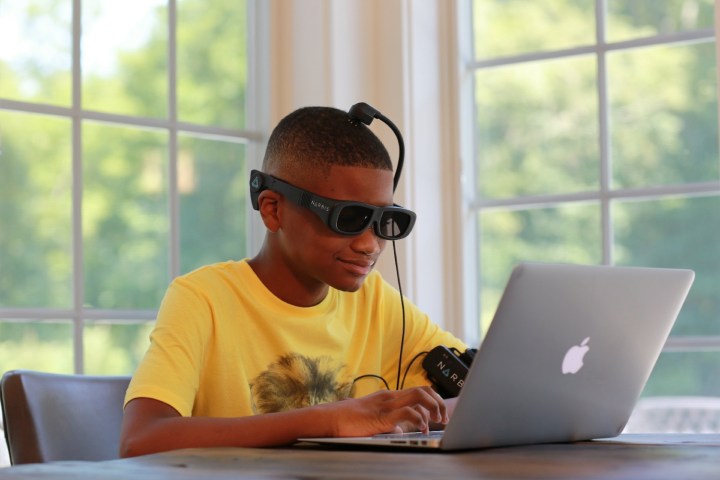
You know those photochromic lenses that turn regular glasses into sunglasses on sunny days? Wellness company Narbis just developed a unique twist on that idea — with a new pair of smartglasses intended to encourage concentration and discourage distractibility by darkening when your mind wanders from the task you should be focused on. If you ever lied to your parents that you were doing your homework when, in fact, you were thinking about something else entirely, this is the giveaway technology that promises to rat you out.
As it turns out, the term “rat you out” may be more than a little appropriate. The technology is built on a penalty-and-reward model based on brain patterns, known as operant conditioning, which has been practiced for more than 50 years. Operant conditioning, in which individuals make an association between a certain behavior and a consequence, was developed by B.F. Skinner, notable for his experiments involving rodents.
Using a trio of smart sensors, the smartglasses track relaxation, distraction, and focus. When distraction is detected, the glasses darken. When a person is relaxed and concentrating, the glasses instantly clear. An associated app tracks your progress and performance. Narbis recommends using the glasses two to three times per week for 30 minutes.
“Since a young age I worked alongside my father, who was a clinical psychologist [who] used neurofeedback in his clinics,” Narbis CEO Devon Greco told Digital Trends. “I watched my father help countless people improve their [lives] and wellbeing with this powerful technology. I have worked with my father since the late 90s developing different kinds of neurofeedback technology which built the foundation for Narbis.”
Greco said that one of the biggest shortcomings of previous neurofeedback technologies was their inability to be used in real-life situations, since they required a person to stare at a screen or listen to sounds. “It has been a long-term goal of mine to make neurofeedback more immersive and to find ways to integrate with real life,” Greco noted.
The Narbis smartglasses are available to pre-order online for $590, a reduction of $100 from their planned retail price.
“Narbis represents an exciting option for families looking for a convenient way to practice attention and focus in day-to-day tasks,” Greco said. “What makes this so exciting is that Narbis integrates with daily life, and applicable to many activities, allowing you to practice attention in the moment when concentration counts most.”
Does it all sound a little bit Black Mirror? Certainly. Could it nonetheless be a game-changer for anyone wanting to improve their own concentration levels? You bet. Color us cautiously intrigued.


